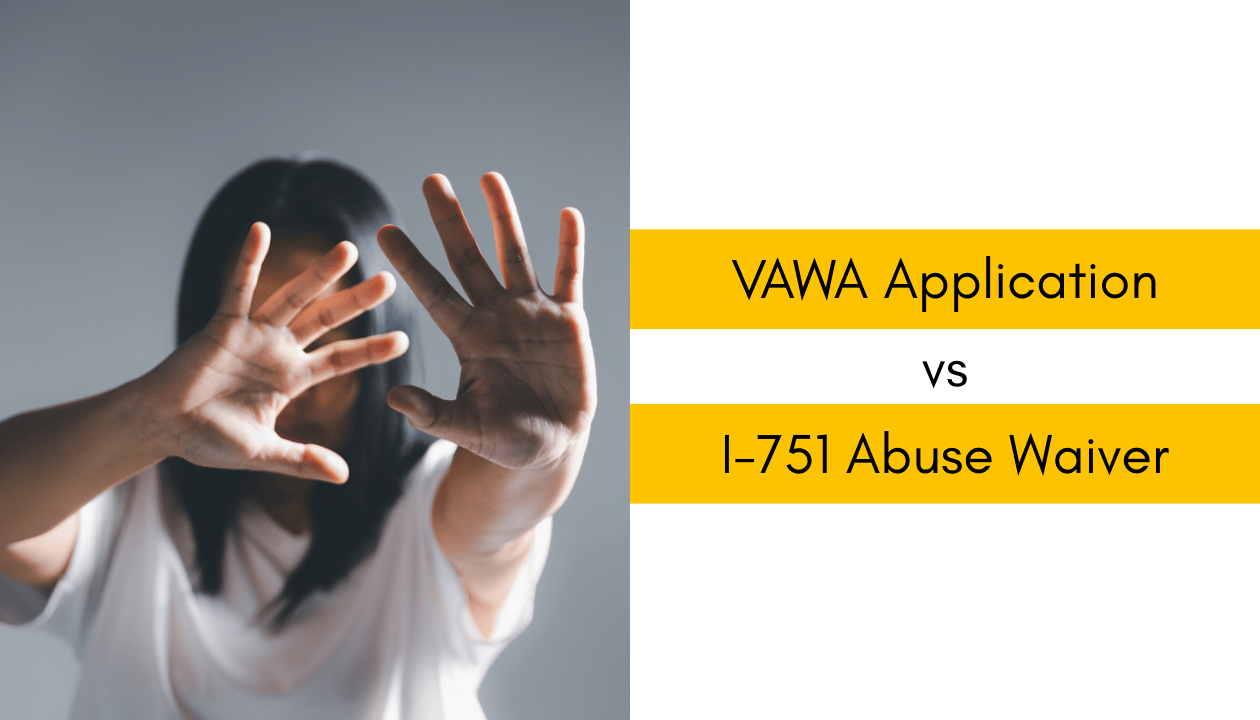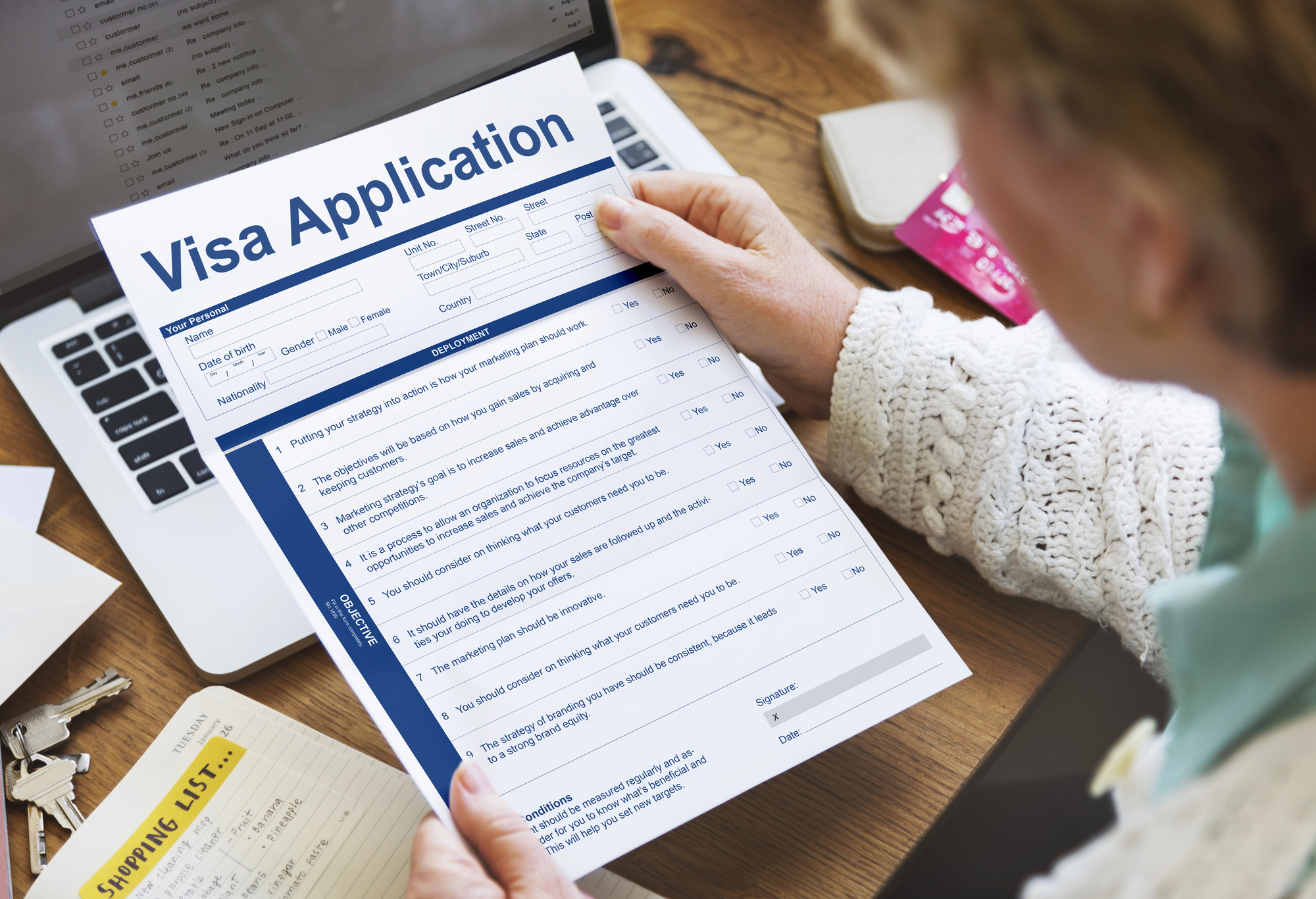Finding safety after an abusive marriage is never easy, especially when your immigration status depends on your spouse. Many immigrants in this situation don’t know where to begin or which legal path to take. The fear of deportation, separation from your children, or being misunderstood by immigration officials can be overwhelming.
At The Chidolue Law Firm, we often hear this question: “What’s the difference between a VAWA application versus an I-751 removal of conditions based on abuse?”
While both options are designed to protect victims, they serve different purposes and apply to other situations.
In this blog, we’ll break down these two forms of immigration relief, so you can better understand your options and confidently take your next steps.
What’s the Purpose of Each Petition
Suppose you are an immigrant who has experienced abuse at the hands of a lawful permanent resident spouse or a U.S. citizen. Legal protections are available in that case, but knowing which fits your situation can be confusing.
A VAWA application is designed for individuals—spouses, children, or parents—who have been abused by a U.S. citizen or lawful permanent resident and wish to apply for a green card independently. It allows you to petition without the abuser’s knowledge, offering safety, privacy, and a path to stability.
On the other hand, an I-751 removal of conditions based on abuse is for individuals who already hold conditional permanent residency through a marriage-based green card.
If your marriage ends due to extreme cruelty, you can request a waiver of the joint filing requirement. This lets you move forward independently, seeking full permanent resident status without relying on your spouse.
Although both options aim to protect abused spouses, the legal process, timing, and eligibility vary significantly. Choosing the wrong path can lead to delays—or even denials—which is why understanding the purpose behind each form is so important.
Who Qualifies for a VAWA Application vs. an I-751 Abuse Waiver?
Understanding the eligibility criteria for a VAWA application and an I-751 removal of conditions based on abuse is essential to making the right choice for your case. Both pathways offer relief, but they are meant for different situations.
VAWA Application:
The VAWA application is available to victims of abuse who are married to a U.S. citizen or a lawful permanent resident spouse. The key difference here is that you don’t need your abuser’s consent or involvement in the process. You can file independently and demonstrate that you’ve experienced extreme cruelty or battery during the marriage.
To qualify, you must show credible evidence of the abuse, which can include police reports, medical records, witness statements, or even a personal declaration. Good faith in your relationship will also be critical in proving that your marriage was genuine at the time of entry.
I-751 Abuse Waiver:
Suppose you already have conditional permanent residency through a marriage to a U.S. citizen or lawful permanent resident, but your marriage ends due to abuse. In that case, you may be eligible for an I-751 waiver. This waiver allows you to remove conditions on your permanent resident status without needing the cooperation of your spouse.
To qualify for the I-751 abuse waiver, you must prove that your marriage was entered into in good faith and that it was terminated due to abuse. You’ll need to provide credible evidence that substantiates the abuse you endured, including details about how the abusive marriage impacted your life.
Filing Process and Required Evidence
Filing a VAWA application or an I-751 abuse waiver isn’t just about submitting paperwork. It’s about telling your story with the strength of proof that meets the standards of immigration law—something that can feel intimidating if you’re doing it alone.
VAWA Application Filing
When filing under the Violence Against Women Act (VAWA), you submit Form I-360 directly to USCIS. While you don’t need to be divorced before applying, you must clearly show that you suffered extreme cruelty or abuse at the hands of your spouse. You’ll also need to demonstrate your reasonable faith marriage, your residence with the abuser, and your moral character.
Your evidence might include:
- Personal declarations
- Police reports
- Counseling or therapy letters
- Photos or messages documenting the abuse
- Support letters from friends, clergy, or community leaders
I-751 Abuse Waiver Filing
For those with conditional permanent residency, filing Form I-751 is how you petition to lift the conditions on your green card. If your spouse is no longer part of your life due to abuse, you can request a waiver of the joint petition customarily required. This tells USCIS you are asking to proceed on your own due to an abusive marriage.
Accepted forms of credible evidence include:
- Medical records
- Police or protection orders
- Therapy or social work documents
- Photos, texts, emails, or anything else that shows the abuse
Both processes can be emotionally challenging. That’s why it’s important to work with someone who understands what USCIS looks for—and how to help you present your truth in the most effective way possible.
What Happens After Filing?
Once your application is submitted, the waiting begins—but what comes next depends on whether you’ve filed a VAWA petition or an I-751 abuse waiver.
For VAWA Applicants
After submitting Form I-360, you’ll receive a notice of receipt from USCIS confirming that your petition is under review. The application may remain pending for several months while an officer evaluates the credible evidence and personal declarations you’ve submitted. If USCIS grants your petition, you may then be able to adjust status and apply for a green card, without needing your abuser’s help.
If your VAWA application is denied, USCIS makes the decision in writing, and you may have options to request a review or take legal steps through an attorney. Rejection doesn’t mean the end, especially if new or more substantial evidence becomes available.
For I-751 Abuse Waivers
Once you file Form I-751 with an abuse waiver, USCIS sends a receipt notice extending your conditional green card for up to 24 months while your case is under review. During this period, your status as a conditional permanent resident remains valid.
An immigration officer may schedule an interview to assess your claim. If your petition is approved, you’ll receive a 10-year green card. If denied, you may be placed in removal proceedings, which can be overwhelming without proper legal guidance.
While both paths involve detailed scrutiny by USCIS, understanding what to expect—and having the proper support—can ease the burden and help you feel more in control of your immigration journey.
Key Differences Between VAWA and I-751 Abuse Waiver
While both the VAWA application and the I-751 abuse waiver aim to protect immigrants from abusive relationships, the two are not interchangeable. Understanding the distinctions can help you choose the option that fits your specific situation.
Here are the main differences:
| Factor | VAWA Application | I-751 Abuse Waiver |
| Who Can Apply | Victims of abuse who are married to a U.S. citizen or a lawful permanent resident | Conditional permanent residents with a marriage-based green card |
| Form Used | Form I-360 | Form I-751 |
| When to File | Can be filed even before divorce | Must be filed within 90 days before your conditional green card expires, or later with a valid explanation |
| Purpose | Seeks lawful permanent residency status independently due to abuse or extreme cruelty | Requests to remove conditions on an existing green card based on abuse |
| Approval Outcome | Leads to the ability to apply for a green card | Leads to a 10-year permanent green card if granted |
| Process Involves | Providing proof of abuse, good faith marriage, and eligibility | Proving good faith marriage and extreme cruelty, plus a waiver of the joint filing requirement |
| Marital Status Requirement | Marriage can still be legally intact | Must show the marriage ended or is no longer viable due to abuse |
Both processes require a clear showing of abuse, a good-faith relationship, and sufficient evidence. However, each is triggered by different timelines and legal statuses.
Why Legal Representation Matters
When you’re filing a VAWA application or requesting an I-751 waiver, you’re not just submitting forms—you’re building a case that impacts your safety, future, and ability to stay in the United States. It takes more than just filling out paperwork. It requires presenting credible evidence relevant to your experience and proving your story in a way that immigration officers will fully understand.
If you’re facing extreme hardship or fleeing an abusive marriage, it’s critical to show that your situation meets USCIS standards. An experienced immigration attorney can guide you through gathering documents, preparing a clear and honest declaration, and requesting options like a fee waiver if you qualify.
Legal help also ensures that every detail is accurate and complete. Even minor errors or missing documents can delay your case or lead to a denial. With the proper support, you can present a strong petition that reflects your truth and protects your rights.
At The Chidolue Law Firm, we understand what’s at stake. We’re here to ensure your case is prepared with care and handled with the urgency it deserves.
Start Your Path to Safety and Stability with Trusted Legal Guidance
Navigating the difference between a VAWA application and an I-751 abuse waiver is not easy. The legal system is complex, and your future depends on every document, deadline, and decision made along the way.
At The Chidolue Law Firm, we help abused spouses and conditional permanent residents protect their rights and move forward. We know how important it is to feel heard, protected, and supported through every process stage.
We are ready to stand by your side if you are unsure which path to take or need help preparing strong evidence for your case.
📞 Call The Chidolue Law Firm today:
💬 Reach out on WhatsApp:
You don’t have to go through this alone. Let our compassionate legal team help you find peace and protection.



